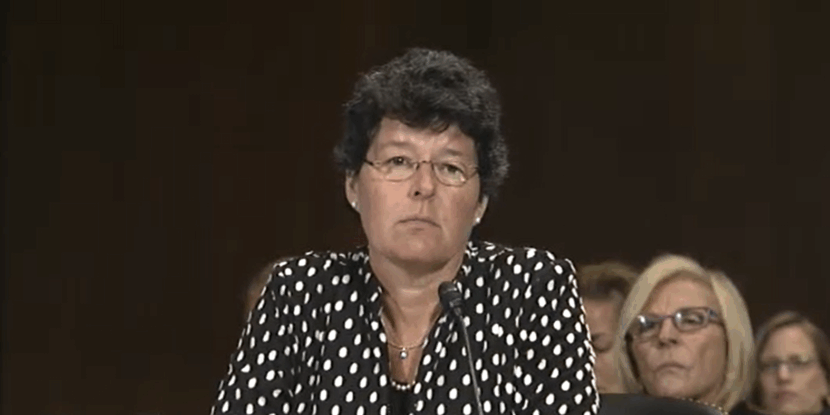
PULSE POINTS:
❓What Happened: A federal judge has issued a temporary restraining order barring the Trump administration from revoking Harvard University’s Student and Exchange Visitor Program (SEVP) certification, which would have barred them from enrolling foreign students.
👥 Who’s Involved: U.S. District Court Judge Allison D. Burroughs, Harvard University, foreign students, Homeland Security Secretary Kristi Noem, and the Trump administration.
Your free, daily feed from The National Pulse.
📍 Where & When: Harvard’s Student and Exchange Visitor Program (SEVP) certification was revoked on Thursday, May 22, 2025. Meanwhile, Harvard’s lawsuit was announced on Friday, May 23, with Judge Burroughs issuing the temporary restraining order shortly thereafter.
💬 Key Quote: “Defendants, their agents, and anyone acting in concert or participation with Defendants are hereby enjoined from: A. Implementing, instituting, maintaining, or giving effect to the revocation of Plaintiff’s SEVP certification; B. Giving any force or effect to the Department of Homeland Security’s May 22, 2025 Revocation Notice,” wrote the federal judge.
⚠️ Impact: The temporary restraining order bars DHS from moving forward with pulling Harvard’s Student and Exchange Visitor Program (SEVP) certification while litigation is ongoing.
IN FULL:
U.S. District Court Judge Allison D. Burroughs, in the United States District Court for the District of Massachusetts, has moved to issue a temporary restraining order against the Trump administration in favor of Harvard University. The order blocks Trump White House officials from revoking Harvard’s ability to import foreign students under the student visa program.
The National Pulse reported Thursday that Department of Homeland Security Secretary Kristi Noem announced her agency would be pulling Harvard’s Student and Exchange Visitor Program (SEVP) certification. This means that Harvard would no longer be allowed to enroll foreign students ahead of the 2025-26 academic year. Additionally, any foreign students currently enrolled would need to transfer to another academic institution.
Burroughs, appointed by former President Barack Obama, ruled that Harvard had demonstrated it would “sustain immediate and irreparable injury before there is an opportunity to hear from all parties” unless a Temporary Restraining Order (TRO) was granted.
“Accordingly, Defendants, their agents, and anyone acting in concert or participation with Defendants are hereby enjoined from: A. Implementing, instituting, maintaining, or giving effect to the revocation of Plaintiff’s SEVP certification; B. Giving any force or effect to the Department of Homeland Security’s May 22, 2025 Revocation Notice,” she stated.
Earlier Friday, Harvard had filed a lawsuit against President Donald J. Trump and his White House. Harvard’s President, Dr. Alan M. Garber, condemned the SEVP revocation, calling it an “unlawful and unwarranted action.”
Garber argued: “It imperils the futures of thousands of students and scholars across Harvard and serves as a warning to countless others at colleges and universities throughout the country who have come to America to pursue their education and fulfill their dreams.”

PULSE POINTS:
❓What Happened: Bitcoin surged past $110,000 for the first time, reaching a new all-time high.
👥 Who’s Involved: Traders, institutional investors like MicroStrategy, and market analysts such as Joshua Lim and Tony Sycamore.
Your free, daily feed from The National Pulse.
📍 Where & When: Early Asian trading on Thursday; Bitcoin is currently trading just under $111,000.
💬 Key Quote: Joshua Lim, global co-head of markets at FalconX Ltd., stated, “It has been a slow-motion grind into new all-time highs. There’s no shortage of demand for BTC from SPAC and PIPE deals…”
⚠️ Impact: The milestone reflects growing optimism in cryptocurrency markets, driven by regulatory developments, institutional demand, and bullish options activity.
IN FULL:
Bitcoin has reached a historic milestone, surpassing $110,000 per coin during early Asian trading on Thursday. The cryptocurrency, now trading just below $111,000, has gained 2.95 percent over the past 24 hours, fueled by growing optimism among traders and investors.
The surge comes amid increased anticipation for regulatory clarity in the cryptocurrency sector, spurred by progress on a stablecoin bill in the U.S. Senate. Market participants view the potential legislation as a step toward legitimizing and stabilizing the digital asset industry. However, some market analysis points to high levels of volatility in international bond markets as driving the flight of investors into Bitcoin.
Notably, a failed Japanese government bond auction earlier this week sent the country’s bond yields to near all-time highs. The ripple effect has dampened confidence in U.S. Treasury bonds as well, leading to a subpar 20-year auction on Wednesday, resulting in a sell-off and increasing yields. This has also made Bitcoin more attractive.
Bitcoin surged in December after President Donald J. Trump expressed an interest in creating a crypto reserve for the United States. This was later achieved in March when President Trump established a reserve of around 200,000 bitcoin, most of which had been seized by federal agencies in criminal proceedings.
Institutional demand has played a significant role in Bitcoin‘s latest rally. MicroStrategy, led by Michael Saylor, has amassed over $50 billion worth of Bitcoin, while other entities, including smaller companies and newly formed firms by crypto leaders, are financing acquisitions through methods such as convertible bonds and preferred stocks.
Joshua Lim, global co-head of markets at FalconX Ltd., highlighted the steady upward trend, commenting, “It has been a slow motion grind into new all-time highs. There’s no shortage of demand for BTC from SPAC and PIPE deals, which is manifesting in the premium on Coinbase spot prices.”
Options markets also reflect the bullish sentiment, with traders taking positions in Bitcoin calls expiring on June 27. Strike prices of $110,000, $120,000, and even $300,000 have seen significant open interest on the Deribit derivatives exchange.
Market analyst Tony Sycamore of IG noted that this new record high indicates Bitcoin’s earlier drop from January’s peak to below $75,000 in April was merely a correction within a broader bull market. “A sustained break above $110,000 is needed to trigger the next leg higher towards $125,000,” Sycamore added.
show less

 1 month ago
2
1 month ago
2








 English (US) ·
English (US) ·